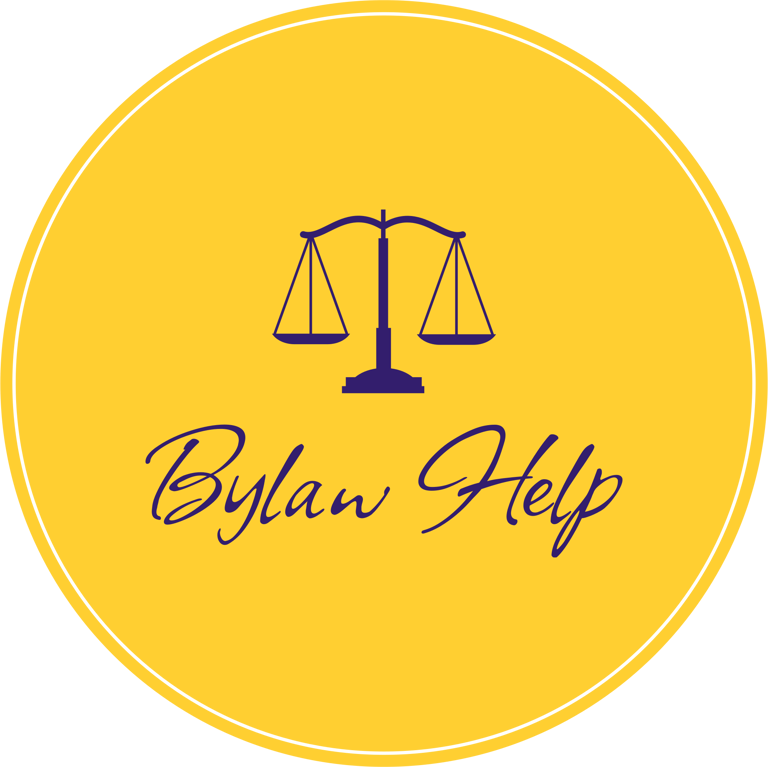Bylawpedia
Notice of Bylaw Infraction
Quick Answers
What it is: A type of ticket issued exclusively for parking violations, created by some local governments. It requires payment of a “voluntary penalty” rather than imposing a mandatory fine.
Statutory basis: Not expressly authorized by provincial legislation. It operates outside MTI and Bylaw Notice regimes.
Does payment start court proceedings? No. Court action only begins if the local government later lays an information under the Offence Act.
Is payment legally mandatory? No. Payment is voluntary, but non-payment may lead to further enforcement action.
Practical risk of ignoring one: Some local governments may refer unpaid notices to collection agencies, even though no court judgment has been entered establishing liability.
Difference from MTIs or Bylaw Notices: MTIs and Bylaw Notices have statutory authority, prescribed dispute processes, and express collection mechanisms. Notices of Bylaw Infraction do not.
Introduction
A notice of bylaw infraction is a type of ticket used exclusively for parking enforcement by some local governments in British Columbia. Although some may argue it is not a ticket because it does not impose a legally mandatory penalty, it fits common dictionary definitions of a ticket[1] and would likely be perceived as a “ticket” by most members of the public.
These notices offer the option of paying a “voluntary penalty” to avoid potential prosecution. They resemble demand letters[2] in civil law, where one party requests voluntary payment to avoid or resolve a legal dispute.
Within the bylaw enforcement community, these are sometimes informally called “love notes.” This article refers to them as Notices of Bylaw Infraction or non-statutory parking tickets.


Image: Notice of Bylaw Infraction (B.C. Reg. 425/2003, Form B.3)
Credit: King's Printer
Legal Nature
Unlike Municipal Ticket Informations (MTIs) or Bylaw Notices, Notices of Bylaw Infraction:
Are issued exclusively for parking violations.
Are not expressly created by provincial legislation.
Do not automatically commence prosecution or create a statutory debt if unpaid.
Have no prescribed provincial dispute, service, or collection process.
Payment is voluntary. If unpaid, the local government may pursue other enforcement tools, such as laying an information under the Offence Act or, in practice, referring the penalty to collection agencies.
By contrast, MTIs and Bylaw Notices:
Are authorized under the Community Charter (2003) or Local Government Bylaw Notice Enforcement Act (2003).
Initiate formal proceedings or adjudication processes.
Have statutory mechanisms for dispute, service, and collection.
Because there is no legislative framework governing Notices of Bylaw Infraction, recipients may not always distinguish them from MTIs or Bylaw Notices, potentially leading to confusion regarding legal obligations.
Contemporary Relevance
Despite modern statutory alternatives, Notices of Bylaw Infraction remain in use in some jurisdictions for parking enforcement.
The statutory MTI and Bylaw Notice systems provide clearer procedural safeguards, service methods, and express collection mechanisms. Nevertheless, these non-statutory notices persist as part of the historical and practical landscape of bylaw enforcement in British Columbia.
Conclusion
Notices of Bylaw Infraction are non-statutory parking tickets that operate outside modern statutory ticketing frameworks.
They function as administrative requests for voluntary payment, and enforcement of non-payment depends entirely on local government discretion. Understanding their legal basis, practical operation, and potential collection consequences is important for anyone involved in bylaw enforcement or municipal governance.
COPYRIGHT NOTICE FOR IMAGES TAKEN FROM BRITISH COLUMBIA LEGISLATION:
These materials contain information that has been derived from information originally made available by the Province of British Columbia
at: http://www.bclaws.gov.bc.ca and this information is being used in accordance with the King's Printer Licence – British Columbia available
at: https://www.bclaws.gov.bc.ca/standards/Licence.html. They have not, however, been produced in affiliation with, or with the endorsement of, the Province of British Columbia and THESE MATERIALS ARE NOT AN OFFICIAL VERSION.
End Notes
[1] It may be argued by some that the notice of bylaw infraction is not an actual ticket, since it only provides for a voluntary penalty, but if one looks to the dictionary definitions for the word 'ticket', the notice of bylaw infraction qualifies. The Wordnik online dictionary has a list of multiple meanings for the word 'ticket', one of those being: "A legal notice to a person charged with a violation of law, especially a minor violation" (Wordnik, n.d.). Likewise, the Merriam-Webster online dictionary defines a ticket as having multiple different meanings, including "a summons or warning issued to a traffic-law violator" (Merriam-Webster, n.d.).
[2] A demand letter is a document sent by one person to another person alleging that a law has been broken, or legal rights infringed, and demanding that the other person do something or stop doing something - for example, stop breaking the law or pay an amount of money that is owed - in order to avoid legal action (TheLawDictionary.org, n.d.).
References
B.C. Reg. 425/2003. https://www.bclaws.gov.bc.ca/civix/document/id/complete/statreg/425_2003
Community Charter, SBC 2003, c. 26. https://www.bclaws.gov.bc.ca/civix/document/id/complete/statreg/03026_00
Government of British Columbia. (2023, December 7). Municipal Ticketing. Province of British Columbia. https://www2.gov.bc.ca/gov/content/governments/local-governments/governance-powers/bylaws/bylaw-enforcement/municipal-ticketing
Local Government Bylaw Notice Enforcement Act, SBC 2003, c. 60. https://canlii.ca/t/jjk1
Merriam-Webster. (n.d.). Ticket. In Merriam-Webster.com dictionary. Retrieved February 24, 2024 from https://www.merriam-webster.com/dictionary/ticket
TheLawDictionary.org. (n.d.). What is a demand letter? In TheLawDictionary.org dictionary. Retrieved March 2, 2024 from https://thelawdictionary.org/article/how-to-respond-to-a-legal-demand-letter/
Wordnik. (n.d.) Ticket. In Wordnik dictionary. Retrieved February 24, 2024 from https://www.wordnik.com/words/ticket
